Memorie.al/ Letter with denouncing information about the famous director that was printed in five copies for the top leadership: “Five characters (friends), appear in the drama as degenerate women, disillusioned in life, drunkards, cheeky, abandoned by one or more lovers. “Life in the dormitory of these friends is low and humiliating.”
The document that we are publishing in this chapter of the book belongs to September 9, 1973 and is a report-information that bears the signature of Andon Rrudha, sent to Ramiz Alia, the secretary of the Central Committee of the ALP, which then and then covered Art, Culture and party propaganda.
From what can be seen at the end of this information report, it was printed in five copies, which most likely (based on the work practice on which the apparatus of the Central Committee of the ALP usually operated), was also sent to other senior officials, such as; Manush Mufti, Mehmet Shehu and even Enver Hoxha ?! (But this remains to be seen, as these alleged letters are not at least in this file where this document came from). This assumption also comes from the fact that the date of this document coincides with the peak of the purge campaign that was personally undertaken and initiated by Enver Hoxha, towards the people of Art and Culture, starting with Todi Lubonja, Fadil Paçrami, Dashnor Mamaqi, Mantho Bala etc.
Which originated directly after the 11th National Song Festival on Radio-Television, where most of the documents of that period of time, have been seen and have the signature of Enver and Ramiz, or their respective notes. As we will see below the relevant document, Andon Rrudha (instructor of the Committee of the Party of the Region that covered the Textile Factory “Stalin”), has informed on the streets his highest superiors, about a drama that the famous director of In those years, Kujtim Spahivogli (graduated in Moscow in 1956), was preparing to come on the stage of the Stalin Textile Factory.
And the topic he had chosen, but as a coincidence was also asked by Osman Laze, director of the Culture Club of the Textile Combine “Stalin” in Tirana, took spunto from the lives of girls and women of that great factory, where had been systematized with work by the hundreds, hundreds since the early 1950s when he began production. And as it is known and is already known by those who had the opportunity to work in that factory and also the generation that lived at that time, a part of those young women and girls workers, have been rumored about their lives, that as it was said: “it contradicted the norms of communist morality”.
This thing does not seem to have escaped the famous director Kujtim Spahivogli, to engrave that painful reality in art, reflecting it in that drama, which he strangely christened in its title “Whores of the Combine”?! But of course, that drama has not been approved by the relevant party authorities and has never been staged. What surprises you the most, or rather the most interesting part, is not the title of the drama, (which, after all, was an excessive courage of Spahivogli, not to say his mistake), rather than the attitude he holds in that work?! At the end of it, the monologue of the main character, Lumtos, is given, which tells the old woman of the house where she was sheltered, about the story of a girl, who had a bad ending, after going to work in factories, without the permission of parents.
And this does not seem to have escaped even the compiler of the report-information, who rightly states that: “The author makes a kind of protest, but against whom”?! Letting it be clear that that protest is against the party, which called on women and girls to come and work in that factory. It is not known exactly how much this report-information influenced the subsequent blow to Spahivogli (from that period he was sent as a shovel worker to the Fier Construction Company, where he lived in difficult living conditions until he died in 1987), because on the document we have there are no notes from the “leadership comrades”, as was usually the case in such cases ?! But the fact that it has been taken into analysis by them leaves no room for speculation. Like most of the documents published in this book, this one is published in full as it is in the relevant file.
INFORMATION
ON A DRAMA IN MEMORY OF SPAHIVOGL PRESENTED IN THE CULTURAL CLUB OF THE TEXTILE FACTORY “STALIN”
Together with comrade Idriz, we had a meeting with comrade Eftimi Lito and the director of the Culture Club, comrade Osman Laze, on the issue of a drama that Kujtim Spahivogli presented to this institution. Comrade Osman Laze, as the director of the Culture Club, asked Kujtim for a drama where the figure of the textile woman of Kombinat would be presented. Kujtim responded to the request and told him that for such an act, I am working and I have titled it “The Whores of the Combine”.
Comrade Osman told him that with this title I do not accept it in any way. After a while, Kujtimi submitted the drama entitled “The first steps, the last pains”. The piece has been discussed by friends of the Club Artistic Council and has not been approved. He describes it as an act that does not correspond to reality and humiliates the figure of a woman.
We read this drama and the content really revolts you. No matter how the title is changed, the content remains the same. Here are a few things: Five characters (friends) appear in the drama as degenerate women, disillusioned in life, drunkards, cheeky, abandoned by one or more lovers. The dormitory life of these friends is low and humiliating. From the mouths of these young girls who have left their families and come to Kombinat, comes out a clumsy vocabulary to feel sorry for the life where they have become. They have fallen for alcohol, for yellow books, for broken love, they have become victims of scoundrels and no one cares about their state of mind. It goes without saying that here we are dealing with a flagrant self-distortion of our socialist reality. Lumta, one of the main characters who has failed in love, ends up with Demon, with whom they also have a child. Not resenting the contemptuous opinion in Kombinat, Demo convinces Lumton to leave Kombinat, they wander homeless in Tirana, without work, in a difficult economic situation. An old woman shelters them for mercy. But even here the couple is followed by misfortunes and rumors. Always under the motive of being the “daughter of Kombinat”, the idiots rush to her. Demo, the husband, ends up himself as a matrapaz. Lumto perverted. In all these vicissitudes she remains the only thread. I do not know where to complain, where to mourn. Sound opinion, party strength is nowhere to be seen. The only somewhat cold character comes out Iliri, the old woman’s son, where they are sheltered but this is not decisive. Thus, Lumto follows a fatalistic path, completely individual, characteristic of capitalist and revisionist countries. Finally, the author gives us Lumto’s monologue to the old woman where he tells her: about the story of a girl who, not listening to her parents, answered the Party’s call and came to Kombinat, but here she was followed by disasters. Apparently, the author is making a kind of protest here, but against whom?!
In the end, the author returns Lumton to the dormitory, between her daughters and her friends, where a little while ago in the fifth act, the situation is given to us unchanged.
It should be said that, although this drama was not staged, the friends of Kombinat should have taken a stand by having a massive discussion./Memorie.al
Andon Rrudha
7/9/1973 (company)
Concept. A Wrinkles
DAKT. Z. Tola





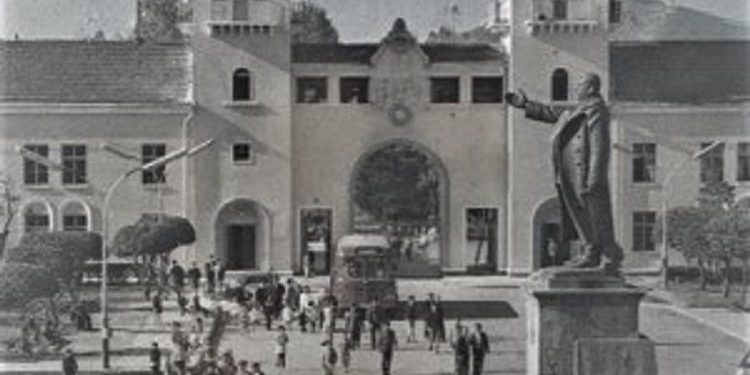


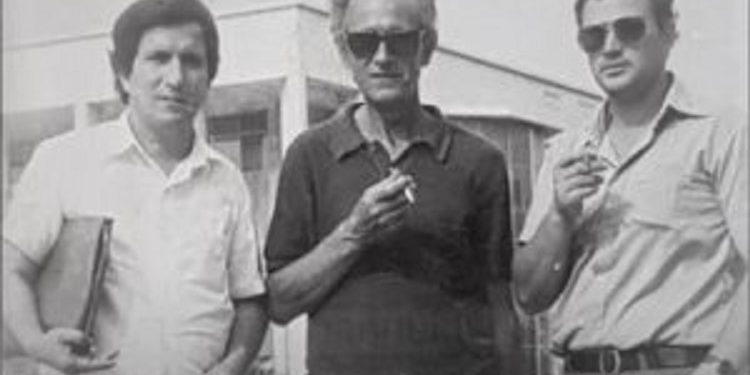

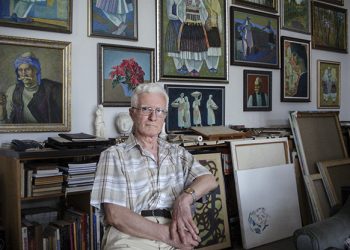
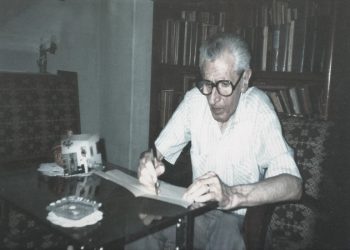
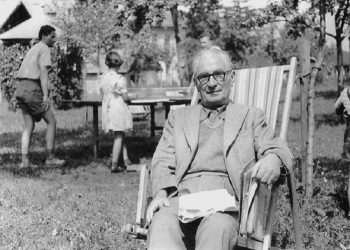

![“Count Durazzo and Mozart discussed this piece, as a few years prior he had attempted to stage it in the Theaters of Vienna; he even [discussed it] with Rousseau…” / The unknown history of the famous Durazzo family.](https://memorie.al/wp-content/uploads/2026/02/collagemozart_Durazzo-2-350x250.jpg)
